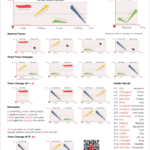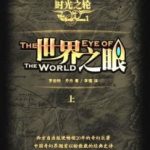Articles in the ‘Learning outside class’ category Page 19
-
Focusing on tone pairs to improve your Mandarin pronunciation
When learning to pronounce tones in Chinese, it makes sense to focus on words rather than single syllables. Most words in Mandarin are disyllabic and since practising these will also include tone changes (sandhi), focusing on tone pairs is recommended. This article gives you all HSK and TOCFL words, sorted by tone! First all [first tone] + [first tone], then all [first tone] + [second tone] and so on. This is great for students who need words to practise difficult combinations, but it’s also useful for teachers.
Read → -
Easing yourself into reading novels in Chinese
Reading a novel in Chinese is the goal for many learners, but perhaps it’s easier to accomplish than you think. This article discusses various methods of making novel reading easier in Chinese, mainly focusing on the benefits of re-reading books you are already familiar with and know you like because you’ve read them before in your native language.
Read → -
A language learner’s guide to wuxia novels
Wuxia can be used as a key to both Chinese language and culture. This article is meant to be a guide to second language learners. If you want to read wuxia in Chinese, where do you start? How do you approach these novels? How do I find one which isn’t too hard? You will find the answers here!
Read → -
Wuxia, a key to Chinese language and culture
Wuxia is something genuinely Chinese and is great for learning both about the culture and the language. in this article, Sara K. introduces wuxia to Chinese learners and explains what it is, why it’s relevant for learners and how to get started with wuxia if you find it interesting.
Read → -
25 books I’ve read in Chinese, with reviews and difficulty ratings
I set the goal of reading 25 books in one year. This article is about the 25 books I read and is meant to serve as encouragement and inspiration. You might also find a book or two you want to read yourself! At the end of the article, I discuss my reading habits in general as well.
Read → -
Chinese immersion with Carl Gene Fordham
It’s widely known that immersion is an effective way of learning languages, but the details are less clear. How do you go about it? This article contains an interview with Carl Gene Fordham, who has many interesting things to say about how he learnt Chinese to an advanced level, as well as how we continued from there and became a translator and interpreter.
Read → -
Learning to read aloud in Chinese
Reading aloud in Chinese is hard, but it’s not impossible. It requires a lot of different skills, but it also seems like reading aloud is a skill in itself that needs to be practised specifically if we want to improve our reading ability. In this article, I discuss an experiment I did to see if I could increase my own ability to read aloud in Chinese.
Read → -
Improving your spoken and written Chinese by focusing on the process
Focusing on the process rather than the result has obvious benefits when trying to learn a foreign language. Does it really matter what number your teacher puts on the final version of your essay? No, what matters is what you learnt and what you will be able to improve until next time. Process writing is common enough, but this article extends the concept to speaking as well, which is a much neglected technique in language learning.
Read → -
How to improve your Chinese writing ability through focused reading
Everybody knows that if we want to improve our writing ability, we need to read more. But what should we read and how? With enough exposure, we can probably learn anything, but it’s much more efficient if we read with focus. If that focus coincides with the current weaknesses in our writing ability, supplemented with some targeted practice, we can improve our writing more quickly!
Read → -
Drills and exercises aren’t only for beginners
It’s commonplace to see workbooks used a lot in beginner courses, but the more advanced the students become, the less they are used. This is mostly for the better, but in this article, I argue that advanced students actually need more drilling than they (we) think. Being able to say or write what we want in one way isn’t enough, we need diversity and a bigger active vocabulary. Drilling is the only time-efficient way of achieving that.
Read →









